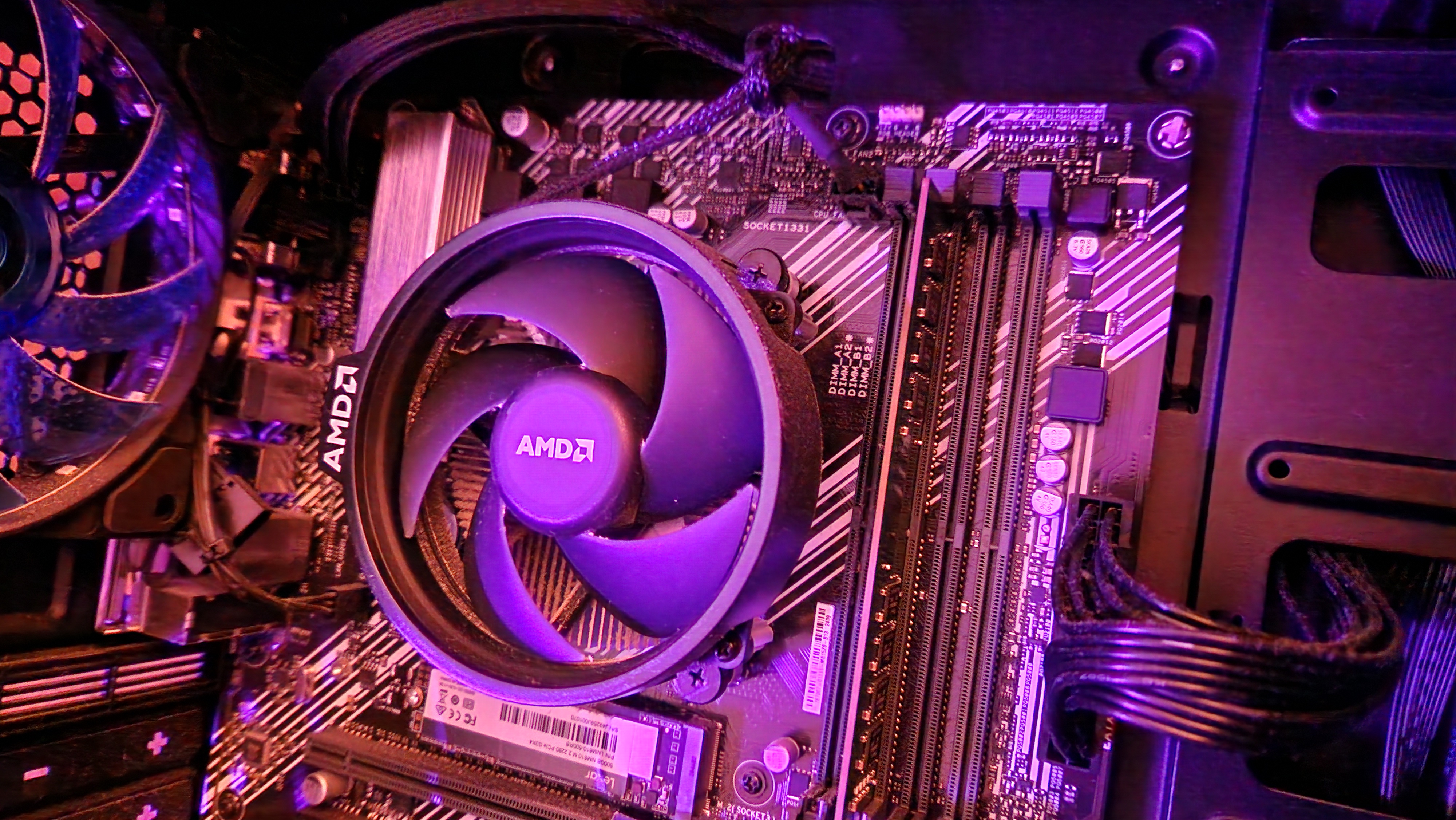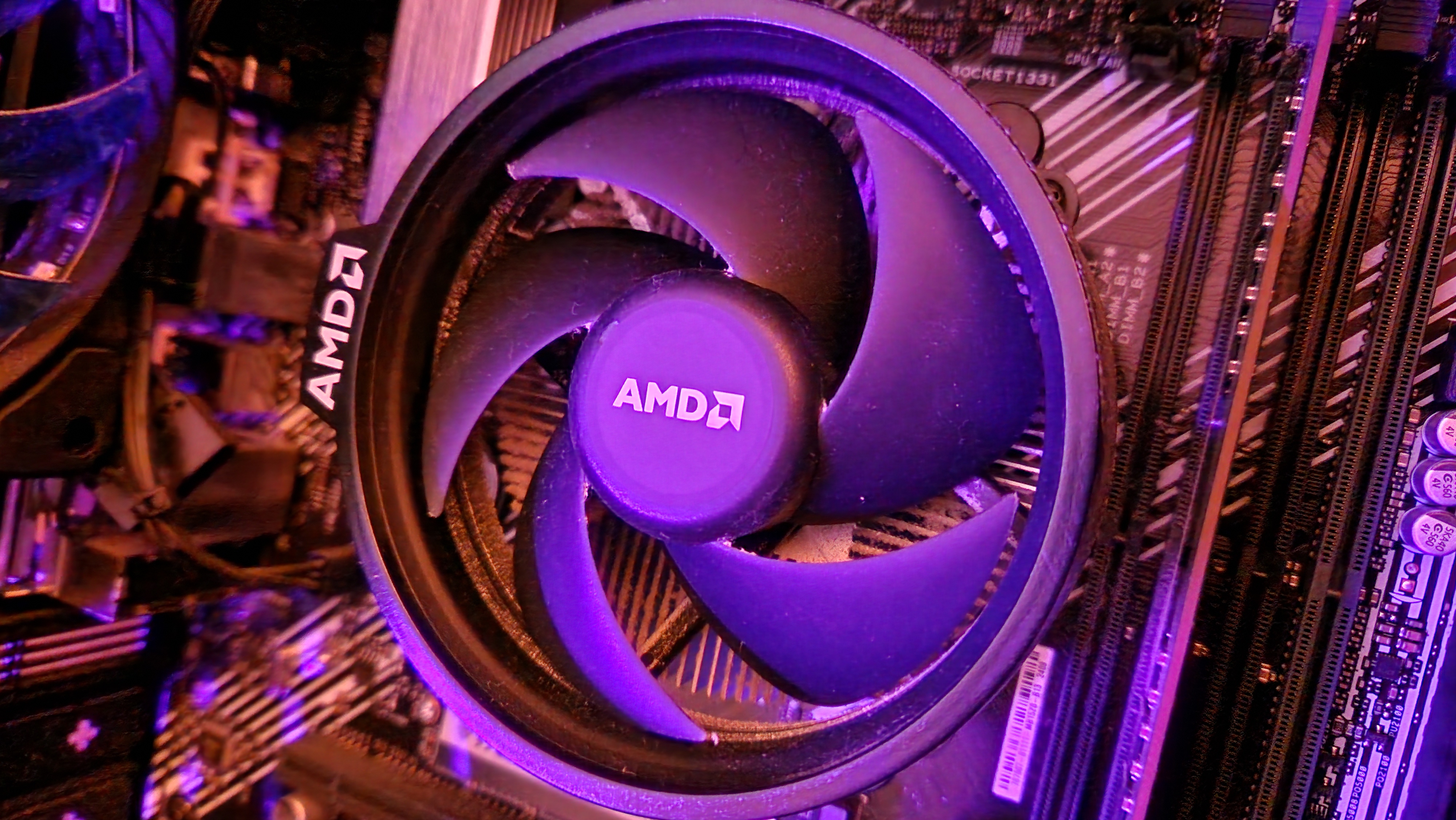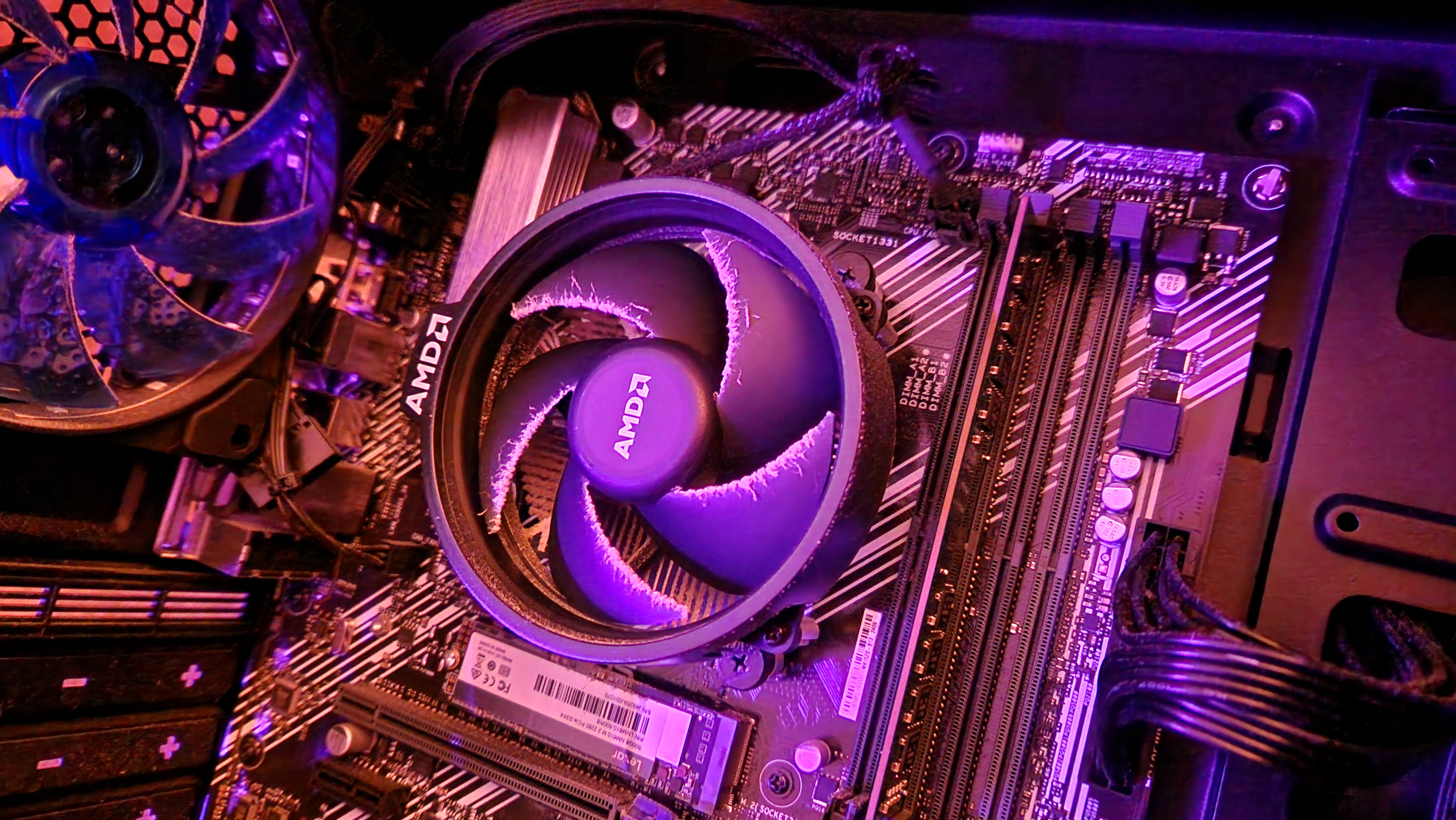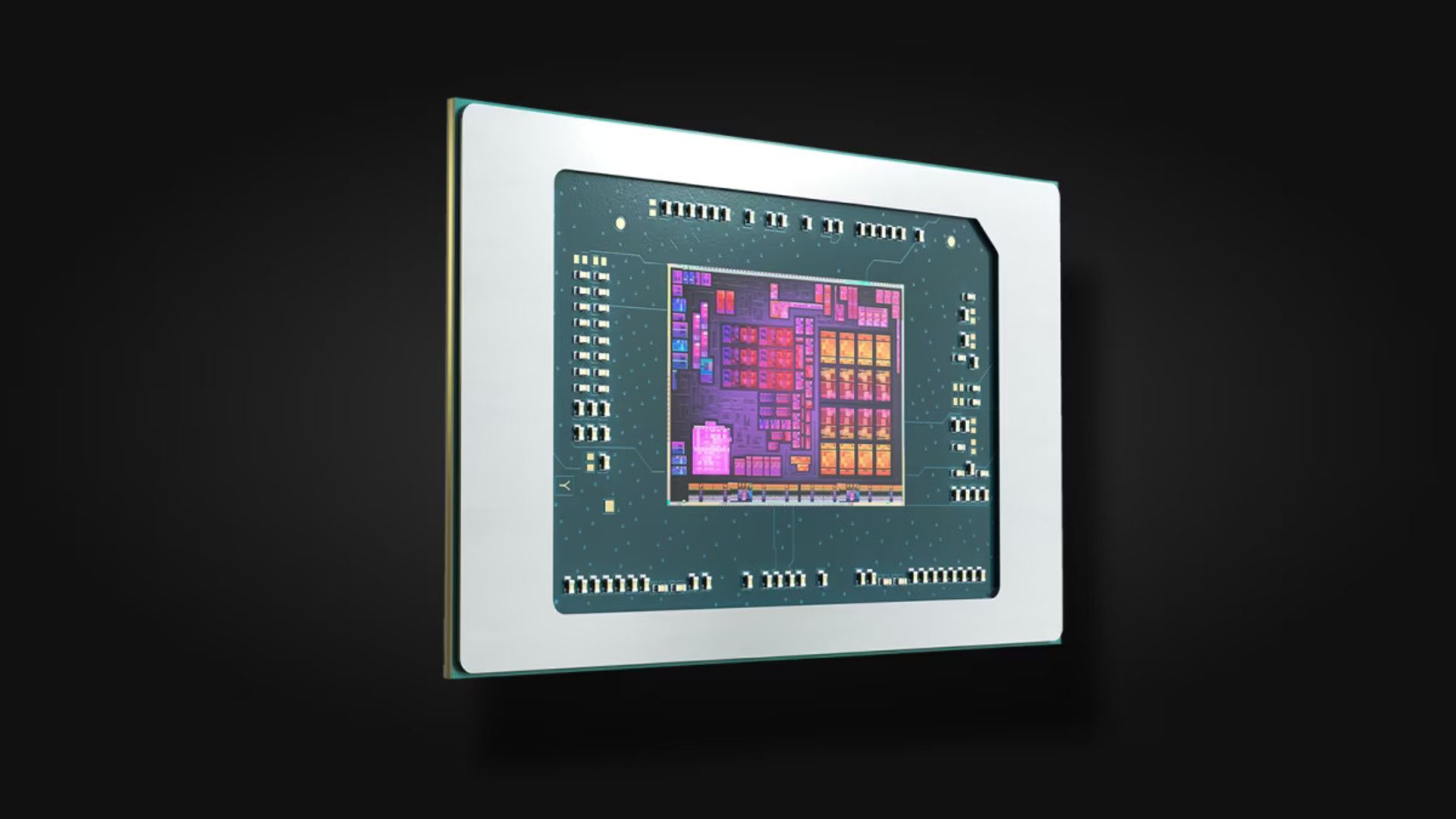AMD Ryzen 5000 Series CPUs are back, but why?
Pro-consumer, or a jab at Intel?

Along with the official reveal of AMD's Ryzen 8000 Series desktop processors at CES 2024, the brand snuck in the news that it would be adding to its line-up of Ryzen 5000 Series processors.
No, you read that correctly - the Ryzen 5000 Series that was released in 2020 is getting four new entries. The Ryzen 7 5700X3D, AMD Ryzen 7 5700, AMD Ryzen 5 5600GT, and AMD Ryzen 5 5500GT will all launch toward the end of this month and will sport Zen 3 architecture.
It's sort of like if Intel went back to its 11th Gen family (which doesn't use its current architecture) and decided to give it an update with four new processors.
This decision is... weird. On one hand, I love the fact that AMD is allowing people who splashed out on one of the best gaming PCs in the chaotic pandemic era to net some upgrades without completely changing their rig from the motherboard up. Folks in 2020 paid a hell of a lot for their components, and since multiple generational updates have come out in the proceeding years, those buyers must feel a sting.

More than that, I do slightly despise the fact that for so many PC gamers, an upgrade to the latest and greatest parts is all too often locked behind new motherboard architecture. Simply put, it means they'll have to fork out on a completely new set of components that, quite honestly, won't give them the performance boost that their sometimes obscene price tags should give them.
On the other hand, though, this isn't exactly a great move for current buyers. Older motherboards that use the 5000 series architecture aren't compatible with DDR5 RAM, future GPUs with PCIe Gen 5 support, or indeed Gen 5 SSDs. So, in buying one of these updated 5000 Series chips you're not exactly futureproofing yourself. It's a bit like if a cul-de-sac got one more house built at the bottom of it. There's now more to the street you live on, but it's still ultimately a dead-end.
I suppose to assess true value, we need to look at some specs.
Weekly digests, tales from the communities you love, and more
| CPU | Cores/Threads | Boost / Base Frequency | Cache | Price |
| AMD Ryzen™ 7 5700X3D | 8C / 16T | Up to 4.1GHz / 3.0GHz | 100MB | $249 |
| AMD Ryzen™ 7 5700 | 8C / 16T | Up to 4.6GHz / 3.7GHz | 20MB | $175 |
| AMD Ryzen™ 5 5600GT | 6C / 12T | Up to 4.6GHz / 3.6GHz | 19MB | $140 |
| AMD Ryzen™ 5 5500GT | 6C / 12T | Up to 4.4GHz / 3.6GHz | 19MB | $125 |
Luckily, these are all reasonably priced - and they'd have to be. The Ryzen 5000 processors have stayed on our best CPU for gaming list because of their extreme value for money. If you've been looking for a budget CPU since 2020, that wave of AMD chips has been the one to call.
But even then, these new entries don't make a whole lot of sense. The new Ryzen 7 57000X3D almost matches up with an Intel Core i5-12600K, but that Intel chip gives you access to DDR5 and two more cores. For its sins, the 12600K is often found around the same $250 asking price, and the same goes for an AMD Ryzen 7 7700, which is usually around the $300 mark. So again, why would you shoot yourself in the foot with a purchase of the new 5000 Series options?
Is AMD simply taking a jab at Intel here so that they both technically have three generations of desktop processors on the go at the same time?

Well, there is always the argument that these chips will be targeted at the people who already have compatible AMD systems and have no interest in moving to a DDR5-compatible machine yet. These new 5000 Series chips are built with Zen 3 architecture and fit into an AM4 motherboard socket. Depending on how old your PC is, this could bring an unexpected upgrade to a machine that previously seemed dead in the water. Imagine having a Ryzen 5 3500 CPU with Vega Graphics (which I used to use on a daily basis), and learning that there are now four brand new CPUs coming out that will provide you with a genuine upgrade. You wouldn't need to buy a whole new PC after all.
For that reason, this is a generous and quite brilliant move by AMD. This is the sort of move that breeds brand loyalty - something that Intel has fallen short of in recent years.
While upgrading to one of these four CPUs could offer some real value, it must be said that desktop CPUs do drop in price pretty quickly when new generations arrive. The new Ryzen 8000 Series CPUs are worth getting excited about, but they use the same motherboard slot as the 7000 Series, so those 2022 chips will likely come down to much more reasonable prices in no time at all. Is a new 5000 Series chip really worth committing to when DDR5 and Ryzen 7000 CPUs are getting cheaper by the day?

If you were to ask me how to upgrade an older rig from 2020 without changing motherboards, I'd say that your CPU is likely fine as it is - the biggest quality-of-life update will probably come from buying one of the newest, and one of the best graphics cards. Maybe for people putting together a new build from scratch, these refreshed CPUs might offer the best value for money, but even to those people, I'd recommend waiting for updated architecture to drop to your price range, because at least then you're giving yourself a bit more future-proofing.
All in all, it's great to see a celebration of the Ryzen 5000 Series. While AMD tries to see just how long it can keep its longevity going, I will applaud support for an aging motherboard socket. Without support for the best RAM for gaming though, I'm left questioning how long they'll be viable. While a certain subset of gamers might be happy with a small budget-buy upgrade, if they're going to spend money on components, I'd always recommend thinking as long-term as possible.
In Association with ROG Ally
For more, check out the best gaming laptop, the best computer speakers, and the best gaming monitor.
One of my earliest memories is playing SuperMario64 and wondering why the controller I held had three grips, but I only had two hands. Ever since I've been in love with video games and their technology. After graduating from Edinburgh Napier University with a degree in Journalism, I contributed to the Scottish Games Network and completed an Editorial Internship at Expert Reviews. Over the last decade, I’ve been managing my own YouTube channel about my love of games too. These days, I'm one of the resident hardware nerds at GamesRadar+, and I take the lead on our coverage of gaming PCs, VR, controllers, gaming chairs, and content creation gear. Now, I better stop myself here before I get talking about my favourite games like HUNT: Showdown, Dishonored, and Towerfall Ascension.


